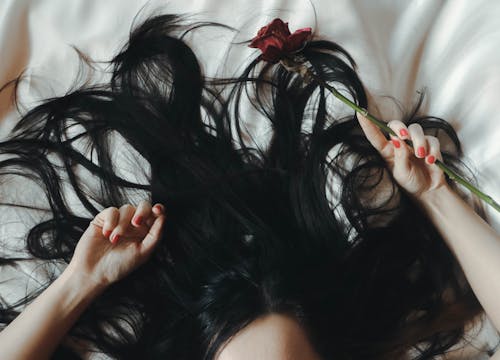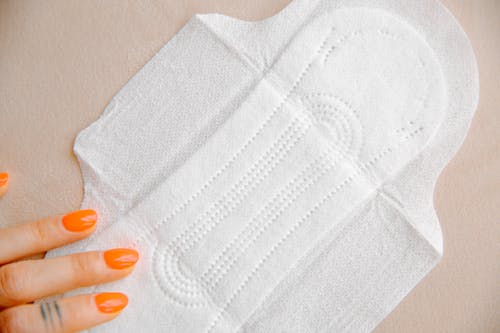
Every hour our heads lose a few strands of hair. Usually, daily losses are up to hundreds of pieces. Hair that has stopped growing leaves its place to give a new one. Thus, the cover is continuously updated without any noticeable loss of thickness. When the replacement mechanism for the vegetation of the head for some reason is damaged, the person notices that the hair has become very loose, and the hair has noticeably thinned out. If the situation is serious, the logical result is total or partial baldness.
Is it possible to prevent it? what to do if the hair loss is very strong? depending on the cause of the pathology. In most cases, hair loss is a cause for medical examination.
The main reason for hair loss
The mantle is an organ that is sensitive to the state of the body. Hair reacts to bad nutrition, disease, hormones, external influences and stress: from changes in the structure and appearance of hair to the appearance of baldness. Highlight the main groups of reasons why hair loss is strong:
- Hair and scalp care
Unsuitable use of cosmetics, aggressive coloring, frequent drying with a hot hair dryer and other factors negatively affect the hair shaft and roots, interfere with the nutrition and blood circulation of the scalp. Minimizing the negative effects and measures to restore hair helps to eliminate the increase in hair loss, which in this case is more associated with cosmetic defects than ill health. This group includes exposure to cold, wind, sun - the head must be protected from climatic factors so as not to expose the skin to excessive cooling, overheating and harmful ultraviolet radiation.
- Scalp disease
Dermatitis, seborrhea, fungal infections often lead to weakening of the roots and hair loss.
- Chronic illness and unhealthy habits
Chronic illness and unhealthy habits. Poor blood supply is a result of spasms of blood vessels that arise both for objective reasons, for example, due to cardiovascular disease, osteochondrosis, and from smoking, caffeine and alcohol abuse.
- Weak immunity
Long-term disease, antibiotics, disorders of the intestinal microflora do not have the best effect on the condition of the hair.
- Lack of vitamins and microelements
The main cause of this condition is an unhealthy diet, diet, seasonal beriberi.
- Physiological causes
Active hair loss can occur for natural reasons. In particular, in women, the hormonal fluctuations associated with pregnancy, taking oral contraceptives first lead to an increase in hair density, and then to "shedding" against the background of the so-called cancellation effect. So, at the time of childbirth, female hormones slow down the development process of the follicles, delaying them in the growth phase. Strong hair falls out after childbirth, when the effects of estrogen return to normal, and all the hair that doesn't weave begins to "crumble" with revenge. On the same principle, contraceptive hormones work.
- Hormonal disorders
Hormonal disorders. In contrast to the natural fluctuations of the hormonal background, endocrine pathology is not the norm, and baldness caused by one of these diseases may be irreversible. Problems with the thyroid gland, sex hormone imbalance in men and women contribute to thinning hairstyles. Strong hair loss in women with hyperandrogenism, in half of humans the strong male hormone dihydrotestosterone is also responsible for alopecia. In hormonal alopecia, a big role is included in heredity.
- Drug effect
A number of drugs cause negative reactions in the body, from allergies to toxins, resulting in damaged hair follicles. A strong effect on the follicles has antihypertensive drugs, antidepressants, chemotherapy agents.
- Anemia
Lack of iron in the body is accompanied by low hemoglobin, weakness, increased fatigue and drowsiness. Outwardly, the disease is expressed by dull pale skin and sparse hair.
- Stress
Chronic stress is a factor in head blood vessel spasm and poor follicle nutrition.
What to do if the hair falls out strongly?
What to do if hair loss is bad. Treatment of baldness is aimed at 2 goals: to stop hair loss and promote hair recovery. To solve this problem, first of all, it is necessary to determine the cause of alopecia. Needs to be checked by a doctor regarding hair. In some cases it is necessary:
- Hormonal correction, with endocrine disorders, menopause in women.
- Drug use (for example, antifungal drugs).
- Another special treatment that only a doctor can prescribe.
Today, there are quite serious drugs against alopecia, which are justified only in difficult situations:
- Minoxidil for hair loss
Minoxidil is a topical steroid for both men and women. Stops age-related and hormone-related hair loss, slows down their life cycle, as a result of systematic scalp rubbing for six months or more
- Propecia (Finasteride)
Pills for the treatment of male pattern baldness. Stops hair loss and contributes to head covering growth. Reduces the production of dihydrotestosterone - the male sex hormone responsible for the reduction of active hair follicles. It is used in combination with Minoxidil.
- Vitamin therapy
Acceptance of vitamins is a prerequisite for effective alopecia treatment. Lack of vitamins and minerals in it can lead to increased hair loss. If vitamin deficiency is the main cause of this disease, vitamin therapy can stop thinning and strengthen hair follicles.
Vitamins in pill form, as with other types of baldness, saturation of the body with important substances is just as important. Since food cannot quickly and effectively compensate for the deficiency, vitamins are used in medicinal form in the form of tablets and injections:
- A, F and B5 help strengthen hair roots
- B1 helps withstand stress
- B2 restores damaged follicles
- B3 and B6 increase metabolic processes in the scalp
- Biotin activates hair growth
- B8 helps the absorption of other vitamins
- B9, E accelerates cell renewal
- B12 enriches hair roots with oxygen
- C strengthens the immune system.
- You can receive complex drugs and bioactive supplements specifically designed for hair density
General recommendations for popular baldness treatments
The main recommendations are based on recipes that inhibit hair loss, strengthen hair roots and stimulate the work of follicles:
After washing the head, it is better to rinse with herbal infusions rather than water. Regular application of oil contributes to moisturizing, nourishes the scalp, removes desquamation, restores damage. Castor oil, jojoba and other oils have a positive effect on hair when rubbed into the roots when heated and left as a compress for several hours or overnight. It is better to wrap the head in a warm cap on top of polyethylene.
Aromatherapy has a beneficial effect on the condition of the hair and scalp. A few drops of essential oil, added to hair combs or masks, help strengthen bulbs and prevent hair loss. Rosemary, mint, lavender, etc. Suitable for this purpose. Natural dyes and ayurvedic powders (henna, basma, brami, amla) strengthen hair. These products can dry out hair, so it is better to apply them only to the roots. A number of masks, shampoos, lotions made with homemade ingredients and herbs help fight hair loss. Its meaning is in restoring blood circulation in the scalp, improving nutrition and strengthening the roots.



No comments: